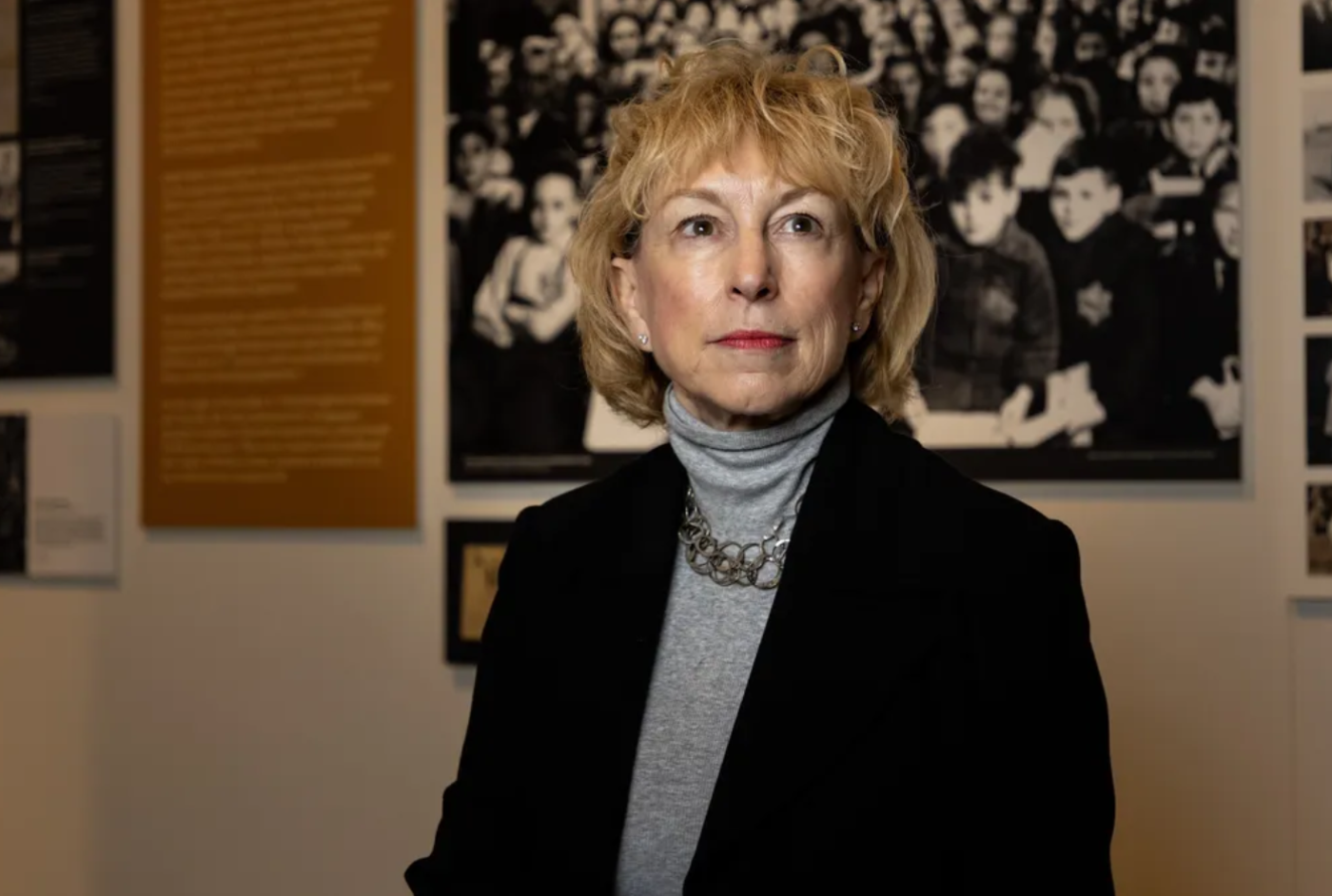Um, really? Nothing in California led me there. I came here, um, and I was working for a tech company, and then, um, I met my husband. We got married, we had a daughter. And at this time, I was feeling really thinking about my career the whole time, and I wasn't thinking about much else. And then, um, my husband had a cleaning person who'd been with him for many years before we got married and continued to to clean our house. And one time she was at our house and, um, I was holding my daughter, who was about six months old and she was engaged to someone and she had some reservations about him. So I said, well, why don't you invite him to our house for dinner and we can just chat and we'll tell you what we think. And she said, oh, he'd never step foot in a Jew's house. And so immediately, I think that was an epiphany for me. Um, here I was holding my baby, who was innocent, um, being a child of a survivor and my father's experience and, and all of a sudden, it was the epiphany was, I have to do something about this. I can't just continue to think that it's going to take care of itself, or someone else is going to do the work. I have to figure out how to do the work. And so, um, I started looking for an organization that was doing, uh, work in fighting hate, and I found the Holocaust Center. And at that point it was called the Washington State Holocaust Education Resource Center. Very long name and, um. And it was just a group of Holocaust survivors, really, who were speaking in schools. They, um, had heard about Holocaust denial and said "no one is going to deny my life". And so they began speaking in schools and their grandchildren's schools and, you know, just very small and, um, but, you know, as I volunteered and helped them with their books and helped them with other things, um, I realized that they had teeth that that they were making a difference, that when they were speaking in schools, the students were affected, the students were moved. The letters we got, the the way the students walked up to them, it was just it was very evident that this storytelling was a secret. It was like a like a secret waiting to come out that had to be done. That this was the way to really reach people through empathy and storytelling. And so I joined the organization and was blown away by how many students they reached every year. Just the sheer numbers and, and then I volunteered for many years and was on the board. I became president of the board and served, I think, four years as-four terms as president of the board. And then eventually, when the job became available, they asked me if I wanted it and I said, yes, you know. So at that time, um, the woman who was executive director was Laurie Warshaw Cohen, in partnership co-executive directors with Miriam Greenbaum. And so Miriam Greenbaum left, and I took her spot. And then eventually, um, and that was in 2006. And then, um, eventually Laurie stepped down and I was the only, um, executive director.
